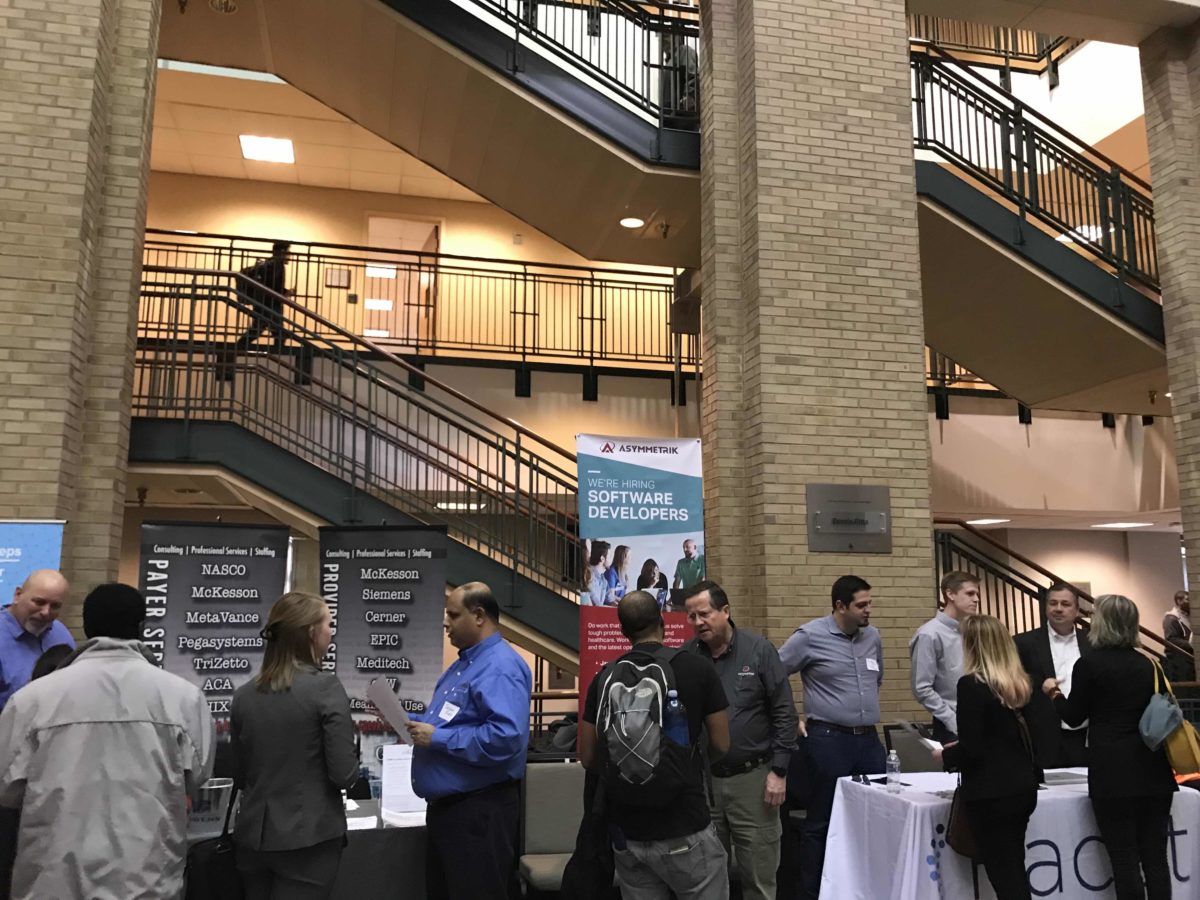
This editorial article is a part of Technical.ly's Career Trajectory Month of our editorial calendar.
From taking a bigger role in projects to a potential pay bump, moving up to a senior role has plenty of appeal. Getting there, however, isn’t always a clear path.
For devs, the role of senior developer or engineer shows up on plenty of hiring ads, but the responsibilities on the job can vary, along with the skills required to land the role in the first place.
We asked a few knowledgable leaders around the Baltimore tech community about what it takes to level up.
###
Katie Plankey is seeing an uptick in requests for senior roles over the last couple of months. With unemployment low, finding top talent is tougher for organizations, said the Baltimore branch manager for human resources consulting firm Robert Half Technology.
For candidates, though, plenty of offers are coming in, indicating there’s room for those who want to move up. As Jonathan King, a DevOps engineer and coach at Spark Baltimore-based Fearless, puts it, it’s an “employee’s market.”
Like many career moves, gaining experience plays a big role. Working on the full scope of a project from start to finish is one way to get the skills necessary. Engineers may also be proficient in both front-end and back-end development.
At small- and medium-sized organizations, there’s often more opportunity to gain these skills since the roles often aren’t as specifically defined as a larger organization, Plankey said.
“The more experience developers can get building an application from start to finish, the more they’ll learn, the more senior they’ll become, and the more valuable they’ll become to various organizations because they won’t be niched into a specific skillset,” she said.
###
Developers and engineers who have done projects on their own or overseen for others are often considered more senior, said Jonathan Hawk, director of managed services at Locust Point-based technical agency and creative consultancy Mindgrub. A senior developer can also pick the tools.
“For anybody who is a software developer, the more junior they are, the more likely it is that other people are making technical decisions for them such as what language, what hosting environment, what sort of libraries are we going to be using,” Hawk said. “For a person who’s more senior, the likelihood is that they’re going to make more of those decisions or creating things from scratch.”
Hawk said the best thing a developer can do early on is take the time to experiment with languages and software stacks to figure out they love. Building relationships with mentors or someone to shadow can also help identify what might not be as obvious.
Education often plays a role in landing jobs, as well, but Plankey said university training is becoming less important to employers. A few years years ago, a four-year degree was important.
“Now it’s definitely more skill-oriented, and even more your experience,” Plankey said.
###
As technology continues to evolve, it’s important to keep learning by taking opportunities to learn new skills, going to meetups and practicing outside of work.
“Any kind of continuous improvement that people can do will only set them up for success. There’s no such thing as bad knowledge,” Hawk said.
With change a constant, Fearless’ King said it’s also important to figure out how you learn.
“I’m interested in how you approach this technology, how you use it, the way you think about using it,” King said.
After all, technology is ultimately about solving problems, and how it can be harnessed to do so. Taking that critical thinking approach is a sign of a more senior developer, said Fearless Software Engineer Passion Coach Alex Mathews. A junior developer will often be thinking primarily about producing code.
With a senior developer, Mathews sees less small-scale problem solving and more long-term thinking, he said: “How can the problem be solved in such a way that it’s able to maintained and modified two years from now?”
###
When reaching a certain level of expertise, there can also be a question of whether to remain primarily coding, or taking on leadership. On one hand, there’s a chance to keep digging in and learning more tech stacks. Or, there’s the path of working more with people — leading teams, interfacing with customers and ultimately building relationships.
“The earlier you can kind of be clear to yourself on which ones of those two things you’re going to be happy with, the better off you are,” Mathews said. “Each individual needs to figure out for themselves which one of those is feasible.”
As a company, Fearless is creating that space. It created the “passion coach” role about seven months ago in part to dig into these questions. King and Mathews are working with members of their “herd” (which Fearless calls its teams) on identifying those paths and thinking about what they want.
“My focus is on making sure that they’re developing their skills that they’re developing their emotional intelligence and they’re growing their careers the way they want to grow them,” said King.
Join the conversation!
Find news, events, jobs and people who share your interests on Technical.ly's open community Slack

Baltimore daily roundup: Medtech made in Baltimore; Sen. Sanders visits Morgan State; Humane Ai review debate

Baltimore daily roundup: The city's new esports lab; a conference in Wilmington; GBC reports $4B of economic activity

Baltimore daily roundup: Find your next coworking space; sea turtle legislation; Dali raided and sued


